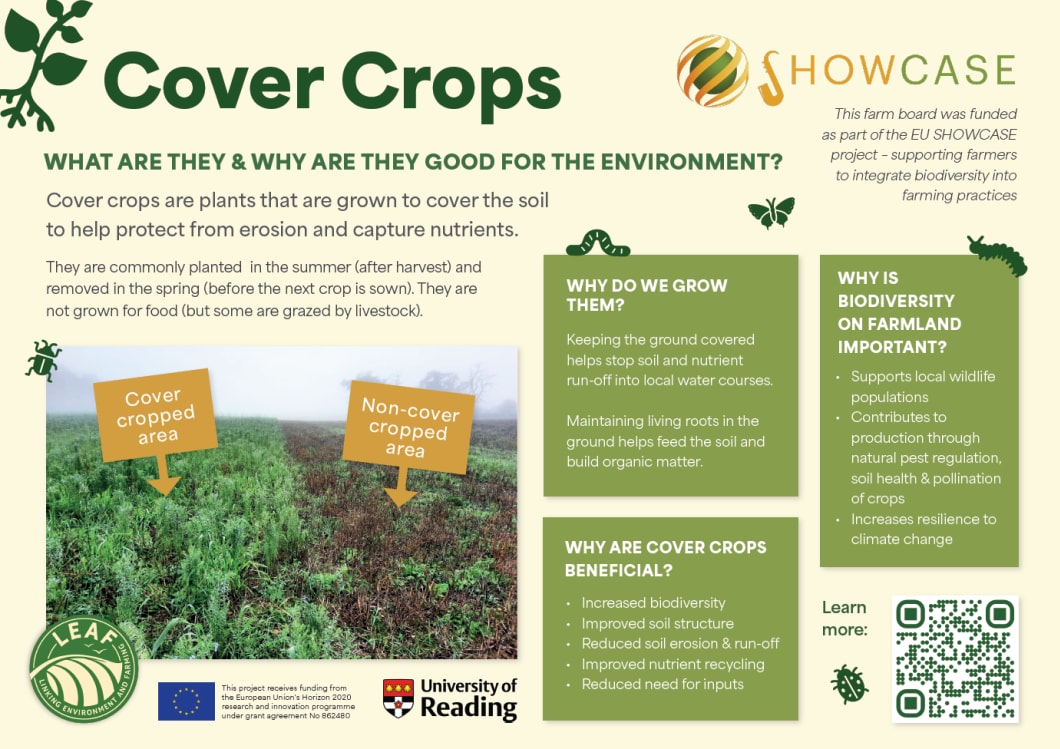- About Integrated Farm Management
- Our LEAF Network of Demonstration Farms & Innovation Centres
- Resources
- LEAF Sustainable Farming Review
- LEAF Endorsed Advisors & Consultants
- Our Projects & Partnerships
- Nature Based Solutions to Climate Change
- Beacons of Excellence
- Resilient & Ready
- Accelerating & Demonstrating the Journey to Net-Zero
SHOWCASE
This project is focused on SHOWCASing synergies between agriculture, biodiversity and ecosystem services to help farmers capitalising on native biodiversity and is dedicated to the integration of biodiversity into farming practices.
The project aims to deliver new insights and innovative tools facilitating the agricultural sector’s transition towards more sustainable farming, and thus help meet wider societal needs. The project has been running since 2020 and ends in late 2025, involving 23 member organisations across 15 countries.
Cover crop trials
In partnership with the University of Reading, LEAF recruited 16 farmers across the UK as part of a European wide network of Experimental Biodiversity Areas (EBAs). The farms took part in trials looking at how different species of cover crops differ in their frost tolerance, aiming to test how cover crop frost tolerance can affect biodiversity, ecosystem functions and yield on UK arable farms.
In contrast to traditional research approaches, these trials were developed through a co-design process, where researchers and farmers worked together to decide what topic to study. This was done through a series of workshops and meetings, where the farmers mapped out key topics and issues they were interested in, eventually agreeing on cover cropping as the study subject.
Frost sensitive species tested: Early English Vetch, Berseem Clover, Black Oats, Buckwheat
Frost tolerant species tested: Winter Vetch, Crimson Clover, Protector Rye, Linseed

An overview of the key traits of different cover crop species, including rooting depth, root type and frost hardiness, can be found here.
Key results from the cover crop trials
- Doubled plant ground cover & biomass during cover cropping
- Halved weed abundance during cover cropping
- Increased spider abundance by 40% & family richness by 25% during cover cropping
- Increased earthworm abundance by 40% & biomass by 50% during cover cropping & in the subsequent crop
- Marginally improved soil structure & moisture retention during cover cropping & in the subsequent crop
- Improved microbial decomposition rates during cover cropping
You can hear more about the trial results in this webinar recording with Dr Amelia Hood of the University of Reading.
LEAF has produced a farm board graphic about the benefits of cover crops, which can be downloaded and used as a free educational resource on your farm.
Download here.

